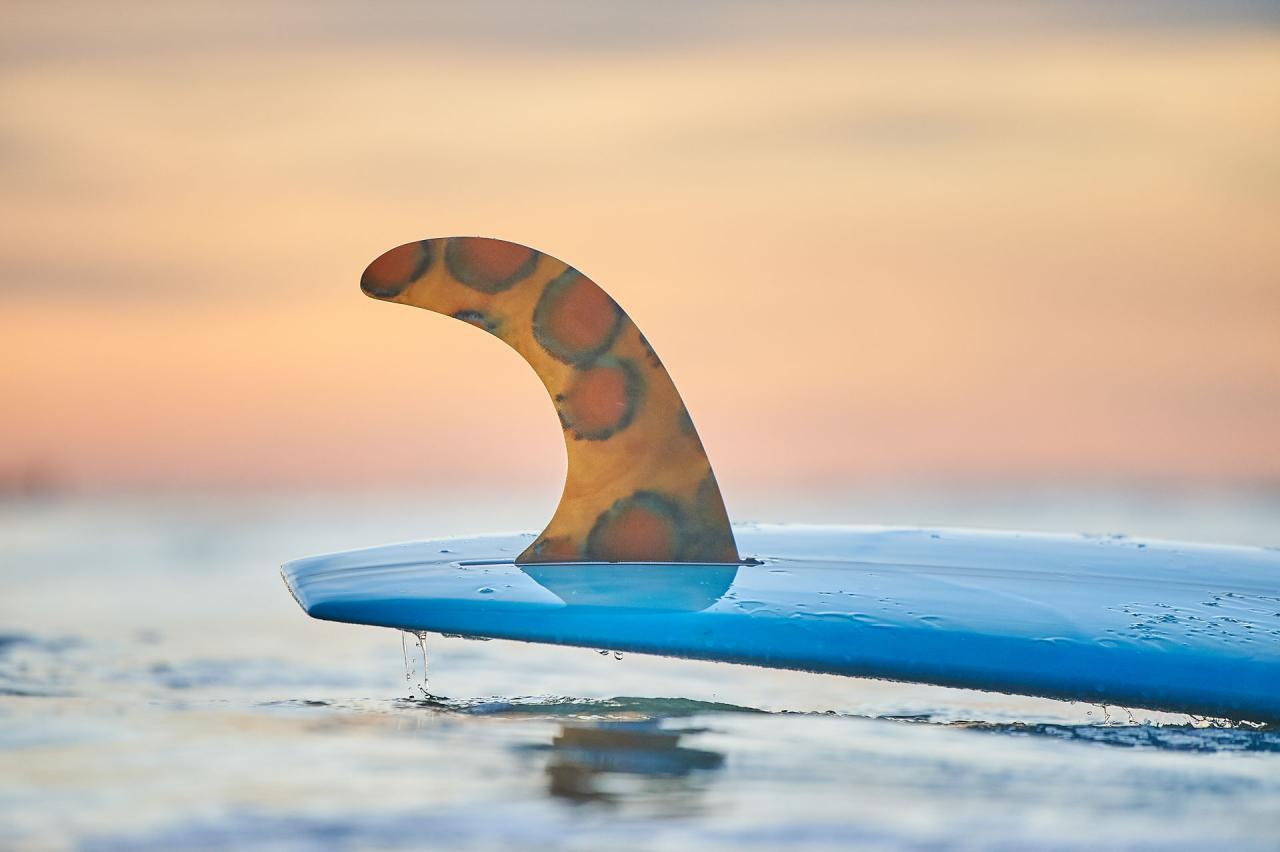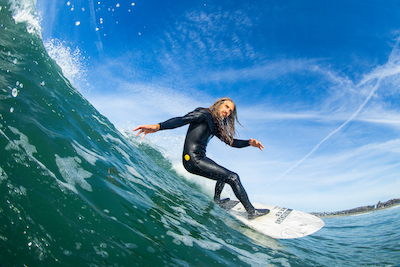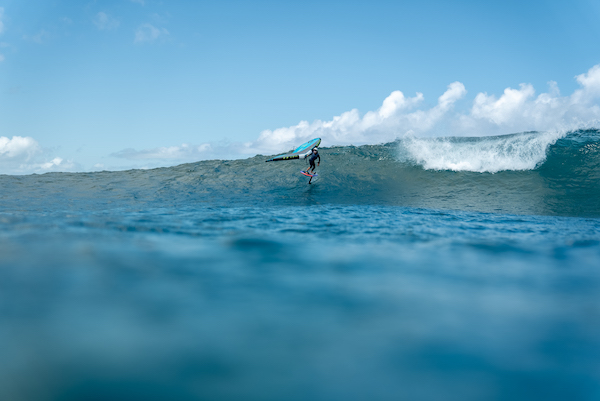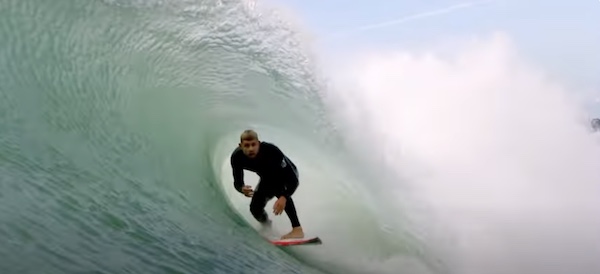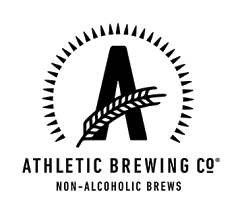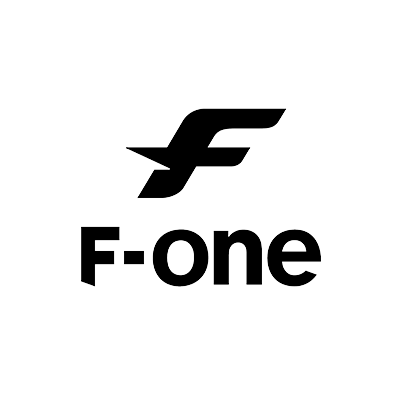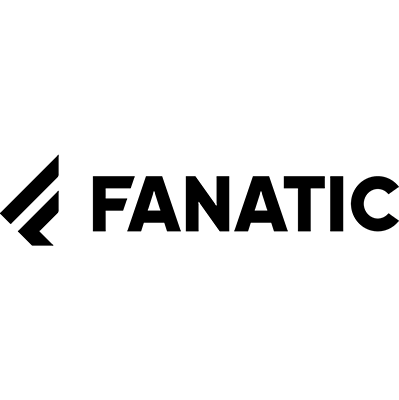Driving up the New England coastline during hurricane season can be mesmerizing. Waves begin to unveil themselves for the first time since the previous winter and unnamed novelties begin to take shape. This time of year, the stretch of coast from Connecticut to Maine is cold, rugged, wave-rich and filled with characters from all different walks of life. It’s not uncommon to see a wetsuit-clad businessman taking a call from his car in between sessions, only to rejoin the line up with a fisherman or two, a yoga teacher, and frothing groms who skipped class for a chance at getting shacked. It’s a melting pot of surf culture, and it's here in one of these sleepy surf towns where you’ll find Korey Nolan of Hydrophile Surfcraft.
Korey is a one-of-a-kind human being. He lives in Hampton Falls, New Hampshire where he and his wife Becky are raising their family—and where Korey foils surf fins for a living out back in their garage. There are no CNC machines, or any other fancy apparatus used nowadays for fin layups. Korey is a true master of his craft and makes each and every fin from scratch and by hand. This is an extensive process from start to finish, and it is out of this labor of love that Hydrophile Surfcraft was established. But to truly appreciate his company, we first have to understand who Korey really is.
I first met Korey in 2005 at a surf and skate shop I was managing at the time. Korey walked in with apprehension on his face, carrying a skateboard he’d meticulously hand painted. He asked politely if he could put the board on the wall for consignment, and recognizing his talent, I obliged. From then on, I had the pleasure of getting to know Korey more and more over the years. He is a man of few words; however, when he speaks, each word is deliberate, his jokes are witty, and conversations true. Korey is as authentic as they come and believes in kindness over cruelty, craftsmanship over mass production, showing truth by actions over words, and family over everything.
Korey is a passionate man whether it’s family, fins, or music. His love for music has always been a central part of his life and for ten years Korey worked at Newbury Comics, a record chain based in Massachusetts. Someone who is obsessed with audio fidelity is called an audiophile. Similarly, a molecule that is attracted to water is hydrophilic. This is where the name Hydrophile Surfcraft derives from, as in one who is attracted to water. Korey started custom building fins as gifts for friends out of the scrap pile of bamboo and basalt fiber left over from building handmade snowboards. After seeing a rise in demand for his fins, Korey decided to pursue his craft full time. As Korey puts it, “Hydrophile Surfcraft is a passion project, turned obsession, turned career. Each fin is handcrafted with love and attention to detail by one pair of hands using the best materials available.” Korey’s fins are tried and true—and that’s why there’s a massive demand for them here in the United States and abroad.
Beyond making surf fins, Korey is passionate about sustainability and what that looks like within the surf industry. While the process necessary to make quality surf fins isn’t green, Korey focuses on being as sustainable as possible in his shop by using the best bio-based materials he can throughout the process. Plus, any resin left over from making the fins is given a second life—often scooped up and put into molds where it’s left to harden into fin keys, flower pots, or earrings.
Annually, the surf brand Vissla co-hosts a “Creators and Innovators” upcycle contest with the Surfrider Foundation. The idea is to turn waste into want by taking items that might be considered trash and turning them into a usable surf craft. The functioning wave riding vehicles are then judged on innovation, functionality, creativity, design and aesthetics. Korey has risen to the challenge three times and has won first place twice over an international field of very talented, like-minded competitors.
The first upcycled surfboard Korey created, the “Yewlatta,” was constructed using over 700 styrofoam cups from New England's largest coffee chain, Dunkin’ Donuts. The EPS cups were pressed into a foam blank and shaped into a rideable surfboard, then Korey pressed thirty plastic straws into a mold to create the fins. This effort awarded him a second place finish and ignited a fire for his next build.
Korey’s second crack at the contest came the following year. As Korey became more and more involved in the local Surfrider chapter and participated in their beach cleanups, he noticed an overwhelming abundance of waste from commercial fishing, particularly lobstering. Pots, lines, and buoys are constantly washing ashore in storms and from routine equipment failure while fishing. The lobster buoys are typically constructed of closed-cell foam, so are ideal materials to utilize as the major design element of an upcycled surfboard. Korey scavenged a total of 47 lobster buoys from the beaches in and around New Hampshire, a recycled shipping crate, reclaimed wood for nose/tail blocks, scrapped aluminum from a local brewery sign, mahogany decking scraps, salvaged cork board, and a scrapped MDF and lexan sign panel from an old business. He also used the elaborate paint and coloring of the buoys as a main design element. The end result was a gorgeous 7’0” lumber-hulled soft-top surfboard that took first place. Korey says, “There’s nothing as ubiquitously New England as lobstering, and I feel that if we intend to uphold its cultural and economic significance, shouldn’t that start with a nurtured ecosystem? I love the heritage of where I live, and appreciate the importance of lobstering to our region, and as a fellow ocean-centric individual, I hope to shed light on this issue to help prolong tradition in a less [negatively] impactful way.”
After a taste of victory, Korey set his eyes on the 2022 contest and got to work. Korey’s wife has rheumatoid arthritis and her medication is shipped monthly in an EPS foam cooler. He took this as an opportunity to harvest some waste foam and create a 10’0 Pig that is functional and conveyed a message about the wastefulness and dirty business within the pharmaceutical industry. He also created a unique fin design using recycled resin from Piper Surfboards’ glassing room floor and boat decking for a tailblock to match the fin. This extraordinary endeavor led to another first place victory and notoriety from his peers.
The surf industry can be a difficult space to develop a new brand, not to mention if you’re based in New England. Most of the core companies have been around since the dawn of time and the masses are heavily influenced by the California surf culture with a Cali residence. Korey goes as far to say that the surf industry can be cannibalistic. He says, “Big brands make it nearly impossible for hand shapers to charge what their craft is worth. Custom builders sacrifice thousands of dollars to hone their craft, while no one is willing to give up trade secrets.” To hand shape custom fins for a living is a pursuit of will. Korey is in a unique position—focusing on fins, so he does not have the same level of competition as board shapers, and he has a very specific corner of the market to carve out a space for Hydrophile.
Korey feels lucky to call New England home. As a custom surfcrafter, the surf tends to be just fickle enough to ensure that he doesn’t blow an entire workweek in the water (most of the time). Summers are typically slow for surf and cater to beginners and longer equipment to scratch the itch. Fall can absolutely pump and our winters promise bigger surf in the months to come with far less friends participating in the often frigid sessions. The characters we do encounter are rugged individuals from all different walks of life who prefer to whisper about the waves they found and rode. If we are lucky enough and all the stars align, we can surf and snowboard on the same day. For guys and girls like Korey, that is why we are lucky to call the Northeast home.

